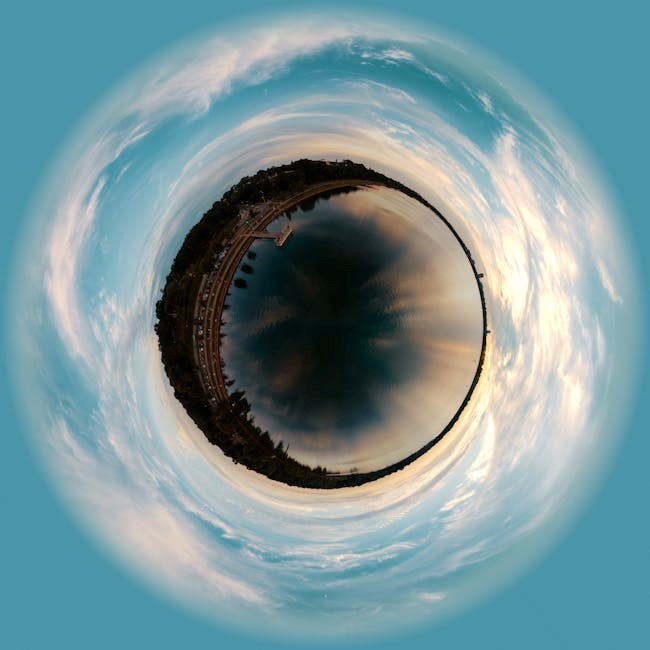origins of the modern world pdf
The origins of the modern world are traced through global transformations, environmental changes, and the rise of industry, as explored in Robert B․ Marks’ comprehensive analysis․
Overview of the Modern World’s Origins
The modern world’s origins can be traced to transformative processes beginning in the 15th century, marked by the rise of global trade networks, environmental shifts, and technological advancements․ Robert B․ Marks’ analysis highlights the interconnectedness of these factors, emphasizing how European exploration, the emergence of capitalism, and the formation of nation-states laid the groundwork for modern society․ The period saw unprecedented ecological changes and the expansion of industrial systems, which reshaped economies and societies worldwide․ Marks’ work underscores the global nature of these developments, illustrating how regional events influenced broader patterns of modernization․ This overview sets the stage for understanding the complex interplay of historical forces that define the contemporary world․

Importance of Understanding Historical Context
Understanding the historical context of the modern world is crucial for grasping current global dynamics․ Robert B․ Marks’ work emphasizes that historical events, such as European exploration, the rise of capitalism, and environmental changes, have shaped modern societies․ These developments laid the foundation for industrialization, nation-state formation, and global trade networks․ By examining these processes, we gain insights into issues like inequality, technological innovation, and ecological challenges․ Historical context provides a framework for addressing contemporary problems, highlighting how past decisions influence present conditions․ It fosters a deeper appreciation of how interconnected the world has become and prepares us to navigate future complexities․ Thus, studying history is essential for understanding the origins and evolution of the modern world․
Structure of the Article
This article explores the origins of the modern world through a structured approach, tracing developments from the 15th century to the present․ It begins with an introduction to the topic, followed by sections defining the modern world and its key characteristics․ Historical foundations are examined, focusing on events like European exploration, the rise of capitalism, and environmental changes․ The 19th and 20th centuries are discussed in terms of industrialization, nation-state formation, and colonialism’s legacy․ The final section addresses 21st-century challenges, including climate change, globalization, and technological innovation․ Each part is designed to provide a comprehensive understanding of how historical events have shaped the contemporary world, offering insights into the interconnectedness of global processes and their ongoing impacts․

Defining the Modern World
The modern world is characterized by industrialization, nation-states, and globalization, shaped by historical processes like European exploration and capitalism, as detailed in Robert B․ Marks’ analysis․
Key Characteristics of the Modern World
The modern world is defined by industrialization, technological advancements, and the rise of nation-states․ Globalization has interconnected economies and cultures, fostering both unity and inequality․ Environmental changes, such as climate shifts, have reshaped ecosystems and human societies․ The gap between wealthy and impoverished regions has widened, driven by capitalist systems and colonial legacies․ Technological innovation continues to transform daily life, from communication to production․ These characteristics, as explored in Robert B․ Marks’ work, highlight the complex interplay of historical processes that have shaped the modern world․ Understanding these elements is crucial for grasping the origins and evolution of contemporary global dynamics․
Industry and Technological Advancements
Industry and technological advancements have been pivotal in shaping the modern world․ The Industrial Revolution marked a significant shift from manual production to mechanized manufacturing, driven by innovations like the steam engine and factory systems․ These changes transformed economies, creating new industries and job opportunities․ Technological progress continued into the 20th and 21st centuries, with developments in computing, telecommunications, and biotechnology․ Robert B․ Marks emphasizes how these advancements have interconnected the globe, fostering globalization and modernization․ However, they have also led to environmental challenges and economic disparities․ The relentless pace of technological innovation remains a defining feature of the modern era, influencing nearly every aspect of life and society․
The Role of the Nation-State
The nation-state emerged as a central institution in the modern world, shaping political, economic, and social structures․ As outlined by Robert B․ Marks, the nation-state replaced earlier forms of governance, establishing defined territories and centralized authority․ This system facilitated national identity, legal frameworks, and organized military forces․ The rise of nation-states coincided with industrialization and global conflicts, reinforcing their role in competition and cooperation․ Marks highlights how nation-states have adapted to challenges like globalization, balancing sovereignty with international collaboration․ Despite criticisms, the nation-state remains a cornerstone of modern governance, influencing everything from economic policies to cultural identity․ Its evolution continues to define global dynamics in the 21st century․ The nation-state’s resilience underscores its enduring importance in the modern world’s political landscape․
Globalization and Its Impact
Globalization has profoundly shaped the modern world, creating unprecedented interconnectedness across economies, cultures, and societies․ As explored in Robert B․ Marks’ work, globalization traces its roots to European exploration and the emergence of global trade networks; It has driven economic growth, cultural exchange, and technological advancements․ However, globalization has also intensified inequality, environmental degradation, and cultural homogenization․ Marks underscores how globalization has reshaped power dynamics, with multinational corporations wielding significant influence․ Despite its benefits, critics argue that globalization has deepened disparities between the Global North and South․ The ongoing impact of globalization continues to redefine the modern world, presenting both opportunities and challenges in the 21st century․ Its influence remains central to understanding contemporary economic, social, and political landscapes․ Globalization’s legacy is complex, reflecting both progress and inequality․ Its effects are undeniable in shaping the world we live in today․ The interconnectedness it fosters continues to evolve, influencing future trajectories of human society․ Globalization remains a pivotal force in the modern world’s development and challenges․

Historical Foundations: 15th to 18th Century
The period from the 15th to the 18th century laid the groundwork for the modern world, marked by European exploration, the rise of capitalism, and environmental transformations․
European Exploration and Colonization
European exploration and colonization during the 15th to 18th centuries fundamentally reshaped global dynamics, creating new trade routes and cultural exchanges․
The Age of Sail and the Columbian Exchange introduced vast environmental and ecological changes, transferring crops, diseases, and animals across continents․
This period also established the foundation for global trade networks, fostering economic interdependence while often displacing indigenous populations and exploiting resources․
Such activities set the stage for the rise of European dominance and the eventual emergence of a globalized modern world, as detailed in Robert B․ Marks’ analysis․
The Rise of Capitalism
The rise of capitalism marked a pivotal shift in economic systems, transitioning from feudal structures to market-driven economies centered on profit and private ownership․

Emerging in Europe during the 16th to 18th centuries, capitalism was fueled by the accumulation of capital, the commodification of labor, and the expansion of global trade networks․
Colonial exploitation and the extraction of resources from colonized regions further enriched European economies, laying the groundwork for industrialization․

Capitalism’s emphasis on competition and innovation drove technological advancements but also created economic disparities and social inequalities․
Robert B․ Marks highlights how capitalism became a defining feature of the modern world, shaping global dynamics and influencing social structures․
This economic system remains central to understanding the origins and evolution of modern society, as outlined in Marks’ comprehensive analysis․
Environmental and Ecological Changes
Environmental and ecological changes played a crucial role in shaping the modern world, as highlighted in Robert B․ Marks’ analysis of global transformations․
The period from the 15th to the 21st century saw significant ecological shifts, including deforestation, soil degradation, and biodiversity loss, driven by human activities․
Colonization and the expansion of global trade networks intensified resource extraction, leading to irreversible environmental impacts in colonized regions․
Climate change, though not fully understood until recent centuries, began to manifest due to industrialization and agricultural practices․
These ecological changes were not isolated but interconnected, influencing economic systems, social structures, and the rise of global inequalities․
Marks emphasizes how human-environment interactions became central to the development of the modern world, highlighting the long-term consequences of ecological exploitation․
The Emergence of Global Trade Networks
The emergence of global trade networks marked a pivotal shift in the origins of the modern world, as detailed by Robert B․ Marks․
Starting in the 15th century, European exploration and colonization facilitated the creation of interconnected trade systems across the globe․
These networks enabled the exchange of goods, resources, and ideas, linking regions previously isolated from one another․
The expansion of maritime trade routes, particularly in the Atlantic and Indian Oceans, was central to this process․
Global trade networks not only reshaped economies but also influenced cultural and social dynamics, fostering interdependence among nations․
Marks underscores how these networks laid the foundation for modern globalization, creating both opportunities and inequalities that persist today․
The flow of wealth and resources through these systems disproportionately benefited European powers, setting the stage for global economic disparities․

The 19th and 20th Centuries: Industrialization and Conflict
The 19th and 20th centuries were marked by rapid industrialization, the rise of nation-states, and global conflicts that reshaped the modern world’s political and economic landscape․

The Industrial Revolution’s Global Impact
The Industrial Revolution marked a pivotal shift in human history, sparking unprecedented technological advancements and economic transformations․ It began in Britain in the late 18th century, spreading globally by the 19th century․ The revolution introduced mechanized production, railways, and steam power, reshaping industries like textiles, mining, and manufacturing․ This period saw the rise of urbanization as people moved to cities for factory work, leading to significant social and demographic changes․ However, it also brought environmental degradation and exploitation of labor․ The Industrial Revolution laid the foundation for modern capitalism, creating vast wealth disparities and influencing global trade networks․ Its legacy is evident in the interconnected, industrialized world we live in today, highlighting both progress and its costs․ The revolution’s impact remains a cornerstone of understanding the modern world’s development․
Nation-State Formation and Interstate Warfare
The emergence of the nation-state fundamentally reshaped global politics and warfare during the 19th and 20th centuries․ Centralized governments, defined borders, and national identities became the norm, replacing fragmented feudal systems․ This consolidation led to increased military capabilities and organized armies, fostering interstate warfare on an unprecedented scale․ Conflicts like World War I and II highlighted the destructive potential of modern nation-states, driven by nationalism and competition for resources․ The rise of ideologies such as fascism and communism further fueled tensions, creating a volatile international landscape․ Nation-state formation also led to the development of international relations frameworks, aiming to regulate conflicts and promote cooperation․ This period laid the groundwork for the modern geopolitical order, where nation-states remain central to global dynamics and warfare continues to shape international relations․ The interplay between state formation and warfare remains a critical aspect of understanding the modern world․
Colonialism and Its Legacy
Colonialism profoundly shaped the modern world by establishing global power imbalances and cultural exchanges․ European powers exploited resources and labor in colonized regions, reshaping local economies and societies․ The transatlantic slave trade and resource extraction enriched colonizers while impoverishing Indigenous populations․ Resistance and uprisings against colonial rule often led to brutal suppression, deepening social and economic disparities․ The legacy of colonialism includes ongoing struggles for independence, cultural identity, and economic equality․ Post-colonial nations face challenges such as political instability and environmental degradation, rooted in colonial exploitation․ Cultural homogenization and the erasure of Indigenous traditions further complicate the colonial legacy, highlighting the need for reconciliation and justice in the modern world․ Understanding colonialism’s impact is crucial for addressing its enduring effects on global inequality and social injustice․
Economic Disparities and Social Change
Economic disparities and social change have been central to the modern world’s development․ The rise of capitalism and industrialization created vast wealth for elites while leaving many in poverty․ Global trade networks, including the transatlantic slave trade, fueled economic growth but deepened inequality․ Social movements emerged in response, advocating for labor rights and social justice․ The exploitation of colonized regions further exacerbated economic imbalances, leading to widespread protests and uprisings․ These disparities continue to shape contemporary societies, emphasizing the need for equitable solutions to address systemic inequalities and promote social equity․ Understanding these dynamics is essential for grasping the complexities of the modern world and its ongoing challenges․ The interplay of economic and social forces remains a defining feature of global history and development․

The Modern World in the 21st Century
The 21st century is marked by climate crises, technological leaps, and globalization, with critics highlighting inequalities fueled by multinational corporations and cultural homogenization, as noted by Robert B․ Marks․
Challenges of Climate Change

Climate change poses significant threats to the modern world, stemming from centuries of industrialization and environmental exploitation․ Rising temperatures, biodiversity loss, and extreme weather events underscore the urgent need for global action․ The roots of these challenges lie in historical patterns of resource extraction and fossil fuel dependence, as highlighted in Robert B․ Marks’ analysis of the modern world’s origins․ Industrialization and globalization have accelerated ecological degradation, with multinational corporations often at the forefront of resource exploitation․ These practices have not only harmed ecosystems but also exacerbated social and economic inequalities․ Addressing climate change requires a collective effort to transition toward sustainable practices and reduce carbon emissions, ensuring a livable future for generations to come․
Globalization and Its Critics
Globalization, a defining feature of the modern world, has fostered economic interdependence and cultural exchange but also drawn criticism for its unequal impacts․ As Robert B․ Marks explains, globalization has roots in colonial trade networks and accelerated with industrialization․ Critics argue that it exacerbates inequality, benefiting wealthy nations and corporations while marginalizing developing regions․ Environmental degradation and cultural homogenization are additional concerns, as local traditions often yield to globalized consumer culture․ Despite its benefits, such as improved communication and access to goods, globalization’s critics highlight the need for equitable policies to address its downsides․ Balancing progress with fairness remains a central challenge in the globalized modern world․
The Role of Multinational Corporations
Multinational corporations (MNCs) play a pivotal role in shaping the modern world’s economy and culture․ As outlined in Robert B․ Marks’ analysis, these entities have expanded their influence since the 20th century, driving globalization through international trade and investment․ MNCs facilitate the flow of goods, services, and technologies across borders, fostering economic growth in many regions․ However, they are often criticized for prioritizing profit over social and environmental responsibility, contributing to inequality and ecological degradation․ Their global reach enables cultural homogenization, as brands and consumer practices spread uniformly worldwide․ Despite these criticisms, MNCs remain central to the modern world’s economic structure, influencing both development and dependency dynamics on a global scale․ Their impact continues to evolve, reflecting broader shifts in technology and market demands․
Cultural Homogenization vs․ Diversity
Globalization has sparked a tension between cultural homogenization and diversity․ The spread of global brands, media, and technologies has led to the dominance of Western cultural norms, threatening local traditions․ While this uniformity fosters global connectivity, it risks erasing unique cultural identities․ On the other hand, efforts to preserve diversity emphasize the importance of maintaining regional languages, customs, and practices․ This duality reflects the complex interplay of globalization and local resistance․ Robert B․ Marks highlights how global networks, while promoting cultural exchange, often privilege dominant cultures, raising ethical questions about cultural preservation in a modernizing world․ Balancing homogenization and diversity remains a critical challenge in fostering an inclusive global society․ Understanding this dynamic is essential for navigating the cultural landscape of the modern world․
Rising Inequality and Social Movements
Rising inequality has become a defining issue of the modern world, driven by globalization and technological advancements․ These forces have created vast wealth disparities, with benefits often concentrated among elites while marginalized communities face exploitation․ In response, social movements have emerged to address these injustices, advocating for labor rights, civil rights, and environmental justice․ From the labor movements of the 19th century to contemporary activism, these efforts reflect a persistent struggle for equity․ Globalization has also enabled cross-border solidarity, linking local struggles to international causes․ However, the persistence of systemic inequalities underscores the ongoing challenge of achieving true social and economic justice in an increasingly interconnected world․
Technological Innovation and Its Consequences
Technological innovation has profoundly shaped the modern world, driving economic growth and societal transformation․ The internet and digital revolution have connected billions globally, fostering unprecedented communication and access to information․ Automation and artificial intelligence have revolutionized industries, enhancing efficiency but also displacing jobs․ These advancements have created new opportunities for entrepreneurship and innovation, yet they also raise ethical concerns, such as privacy violations and algorithmic biases․ The rapid pace of technological change has further widened disparities, as not all regions or populations benefit equally․ Despite these challenges, technological innovation remains a cornerstone of progress, continually reshaping global dynamics and fostering both opportunities and complexities in the modern world․
